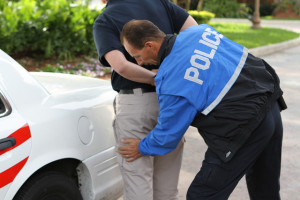The Supreme Court approved police seizures and frisks of suspects on the street when police have:
- Specific and articulable facts taken together with rational inferences from those facts reasonably warranting suspicious criminal conduct.
When the police have reasonable suspicion along with a belief that the suspect is armed and dangerous they may seize the suspect and conduct a protective frisk for weapons.
The U.S. Supreme Court recognized that a stop and frisk is a “serious intrusion upon the sanctity of a person.”
The Court must balance “government interest in crime detection versusthe nature of the government intrusion onto a person’s privacy.
Judicial scrutiny of a stop and frisk will focus on:
- Whether the intrusion was reasonable.
- Whether the intrusion was limited in scope and intensity to effectuate the purpose.
Terry:
Police can detain persons if they have probable cause:
- A felony was committed.
- A misdemeanor was committed in their presence.
Kolender v. Lawson, 461 U.S. 352, U.S. v. Smith, 574 F.2d. 882 (Greir).
Officer Stewart stopped Ayers and handcuffed her. Searched Ayers and found no weapons or evidence of a crime.
- Let him go, no evidence of crime to support probable cause.
- Keep Ayers in handcuffs and did a warrant check based on unsubstantiated hunch.
This was an unreasonable extension of a Terry stop and thus is an unreasonable seizure.
Johns, 217 S.W.3d. 190, Commonwealth of Kentucky v. Marshall, 319 S.W.3d. 352 (2010).
As long as the officer can articulate facts giving rise to suspicion of criminal activity and where his suspicions are reasonable under the circumstances, a brief stop of the suspect is constitutionally condoned.
RCr 9.78 hrs.
King, 374 S.W.3d. 281
Garcia, 335, S.W.3d. 444
Thomas Frazier v. Commonwealth, (2011)
Colhert, 43 S.W.3d. 777
Novrsz, 177 S.W.3d. 691, (2005)
Marr, 250 S.W.3d. 624
U.S. v. Sharp, 470, U.S. 675
Williams, 364 S.W.3d. 65








